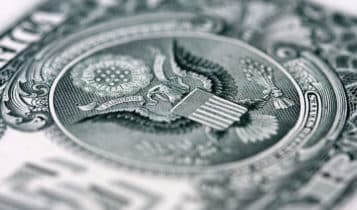
Dollar Falls as China Renews Vow; Syria Tensions
The dollar fell after Chinese President Xi Jinping promised to cut import tariffs, and mounting tensions over Syria weighed.
The dollar index, which measures the greenback’s strength against a trade-weighted basket of 6 major currencies, dropped 0.13% to 89.20.
President Xi on Tuesday promised to open China economy further and lower import tariffs on products including cars. In addition, investors hope it could make a way for negotiations to avert a full blown US-China trade war.
However, investors remained anxious after a report saying that early talks had already broken down.

Meanwhile, Xi’s speech reduced fears of a trade war. It has improved some appetite for risk among investors in commodity currencies and emerging markets.
“President Xi’s comment and seasonality effects with April being traditionally a strong month for risk appetite is helping currency markets recover some ground,” said Simon Derrick, chief currency strategist at BNY Mellon.
On the other hand, opinions differ on whether a trade dispute has been averted.
“The risk of a full trade war… poses the most serious risk to continue strong global momentum,” said Kallum Pickering, senior economist at Berenberg. “However, the likelihood that the current tit-for-tat threats escalate to such an extent seems low.”
Elsewhere, worries over Syria weighed the improved risk appetite.
The US and its Western allies are discussing a possible military strike on Syria. The move is a response to an alleged chemical attack over the weekend.
Further, Russia has urged the US to refrain from taking any military action, despite rising tensions between the two powers.
Dollar Performance
The dollar was lower against the yen, with USD/JPY plunging 0.21% to 106.97. Investors often sought out the safe haven currency in time of political tensions. Also, many believed it would benefit most during a trade war.
The dollar will probably stay below 108 yen in the near-term specially given simmering geopolitical tensions, said Stephen Innes, head of trading in Asia-Pacific for Oanda.
“Even trade war rhetoric, I don’t think we’ve seen the end of this,” Innes said. Traders will prefer to take long positions in the yen, preparing for the possible next wave of risk aversion, he added.
The euro advanced 0.18% to 1.2377. Earlier, it was trading at 1.2383, reaching its strongest level since March 28.
The common currency had gained a boost after European Central Bank policymaker Ewald Nowotny told Reuters that its 2.55 trillion euro bond buying program would wound down by the end of this year. That would pave the way for the bank’s first rate rise since 2011.
Elsewhere, the Canadian dollar stood at 1.2604 against the greenback. It hit a seven-week high of 1.2588 Tuesday, buoyed by higher oil prices and easing concerns about a trade war.
Moreover, the pound was higher versus the dollar. GBP/USD climbed 0.13% to 1.4195.
The Bank of England monetary policy committee member Ian McCafferty said that UK interest rates should be raised again without delay.




